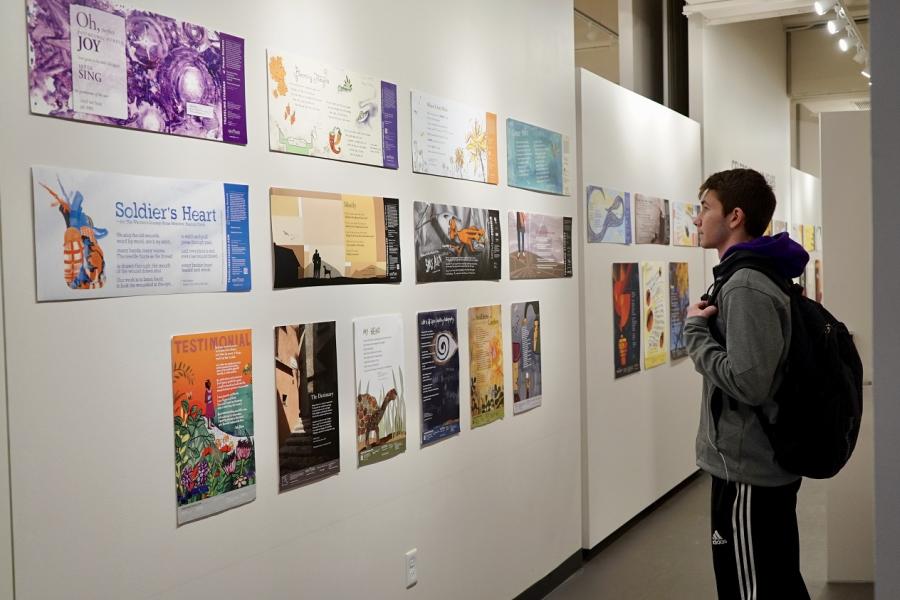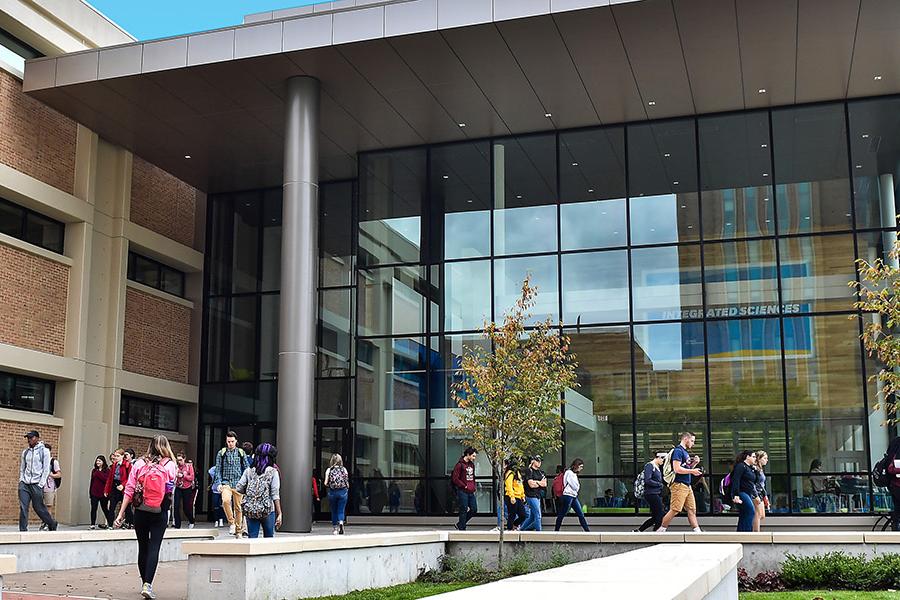Brain Health Research Institute

Health and Well-Being of Students, Faculty and Staff Brought to Light by Healing Stanzas
Students across the nation were challenged as the pandemic swept the world. Healing Stanzas, a collaboration between the Wick Poetry Center, the Healthy Communities Research Institute and the Brain Health Research Institute, seeks to combine the science of brain health and public health with the creative energy of the humanities to provide Kent State students, staff and faculty with an opportunity to improve wellness through reflective poetry.

Physics Professor Awarded NSF Grant that Provides Research Opportunities for Interdisciplinary and Minority Students
The National Science Foundation (NSF) recently awarded a $300,000 grant to Thorsten-Lars Schmidt, Ph.D., to develop molecular tools that allow researchers to study membrane proteins. Schmidt, assistant professor of the Department of Physics in the College of Arts & Sciences, began devel…
Kent State Graduate and Undergraduate Research Mentorship Awards Announced
Intentionality to build successful academic mentoring relationships with students is what sets professors apart at Kent State, and each year two professors at the graduate and undergraduate level receive a student-nominated award for their ability to do so. The intent of the award is to recognize those professors exceeding in mentoring students in how to perform research in any field.

Biophysics Professor Becomes the First Recipient at Kent State of an R35 Grant from the National Institutes of Health
The National Institutes of Health recently awarded a $1.86 million grant to Thorsten-Lars Schmidt to develop molecular tools that help researchers to understand membrane proteins. This is the first time a professor at Kent State has been awarded an R35, which provides promising researchers with a five-year funding for a broader research program, rather than funding a specific project. This gives investigators a lot of freedom to develop new research directions as opportunities arise, rather than being bound to specific aims of a more narrow study.

$850,000 in Funding Awarded for New Nursing School Technology from National Science Foundation
Intravenous (IV) needle insertion is a practice that many medical professionals learn and need to master. A new cross-departmental Kent State project in the works will help nursing students improve their skills with cutting-edge technology.

Kent State’s Brain Health Research Institute Celebrates ‘Collaboratories’ Grand Opening
Kent State University’s Brain Health Research Institute celebrated the grand opening of its new lab spaces on Friday, Nov. 5, with an afternoon of activities that included a keynote presentation, space dedication, tours and student research demonstrations. The new space, featuring interdisciplinary research facilities, is located on the lower level of the Integrated Sciences Building on the Kent Campus.

Now ACCEPTing Students: Kent State Professors Receive HRSA Funding
Whether you are attempting to master the art of cooking or trying your hand at DIY home improvement, chances are books, blogs and articles have been written by many qualified experts to help guide the way. Scholars spend countless hours reading page after page - chapter after chapter to gain compreh…
Excavations and Modifications: 2021 Farris Family Innovation Awards
The Farris Family Innovation Awards support the research of tenure-track faculty members who are not yet tenured at Kent State and who have shown promising drive for their field of study. In May 2021, Faculty Affairs announced the recipients of this year's Farris Family Innovation Awards: Michelle Bebber, assistant professor in the Department of Anthropology, and Elda Hegmann, assistant professor in the Materials Science Graduate Program.

Excavations and Modifications: 2021 Farris Family Innovation Awards
The Farris Family Innovation Awards support the research of tenure-track faculty members who are not yet tenured at Kent State and who have shown promising drive for their field of study. In May 2021, Faculty Affairs announced the recipients of this year's Farris Family Innovation Awards: Michelle …
Quality of Life: Researchers Exploring Treatments for Spinal Cord Injured Patients
A research group in the College of Arts and Sciences at Kent State University is searching for potential treatments for men who have suffered spinal cord injuries and hope to regain bladder control and sexual functions.